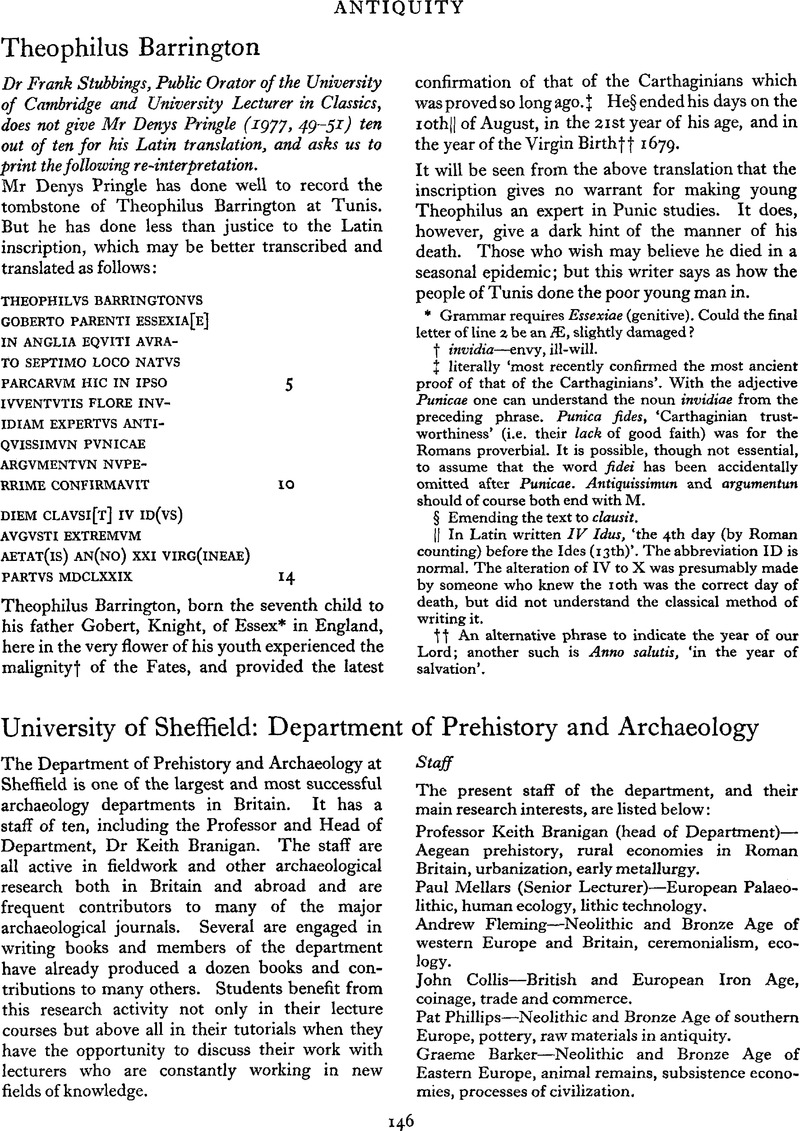No CrossRef data available.
Published online by Cambridge University Press: 02 January 2015

* Grammar requires Essexiae (genitive). Could the final letter of line 2 ne an Æ, slightly damaged?
† invidia—envy, ill-will.
‡ literally ‘most recently confirmed the most ancient proof of that of the Carthaginians’. With the adjective Punicae one can understand the noun invidiae from the preceding phrase. Punica fides, ‘Carthaginian trust-worthiness’ (i.e. their lack of good faith) was for the Romans proverbial. It is possible, though not essential, to assume that the word fidei has been accidentally omitted after Punicae. Antiquissimun and argumentun should of course both end with M.
§ Emending the text to clausit.
∥ In Latin written IV Idus, ‘the 4th day (by Roman counting) before the Ides (13th)’. The abbreviation ID is normal. The alteration of IV to X was presumably made by someone who knew the 10th was the correct day of death, but did not understand the classical method of writing it.
† An alternative phrase to indicate the year of our Lord; another such is Anno salutis, ‘in the year of salvation’.